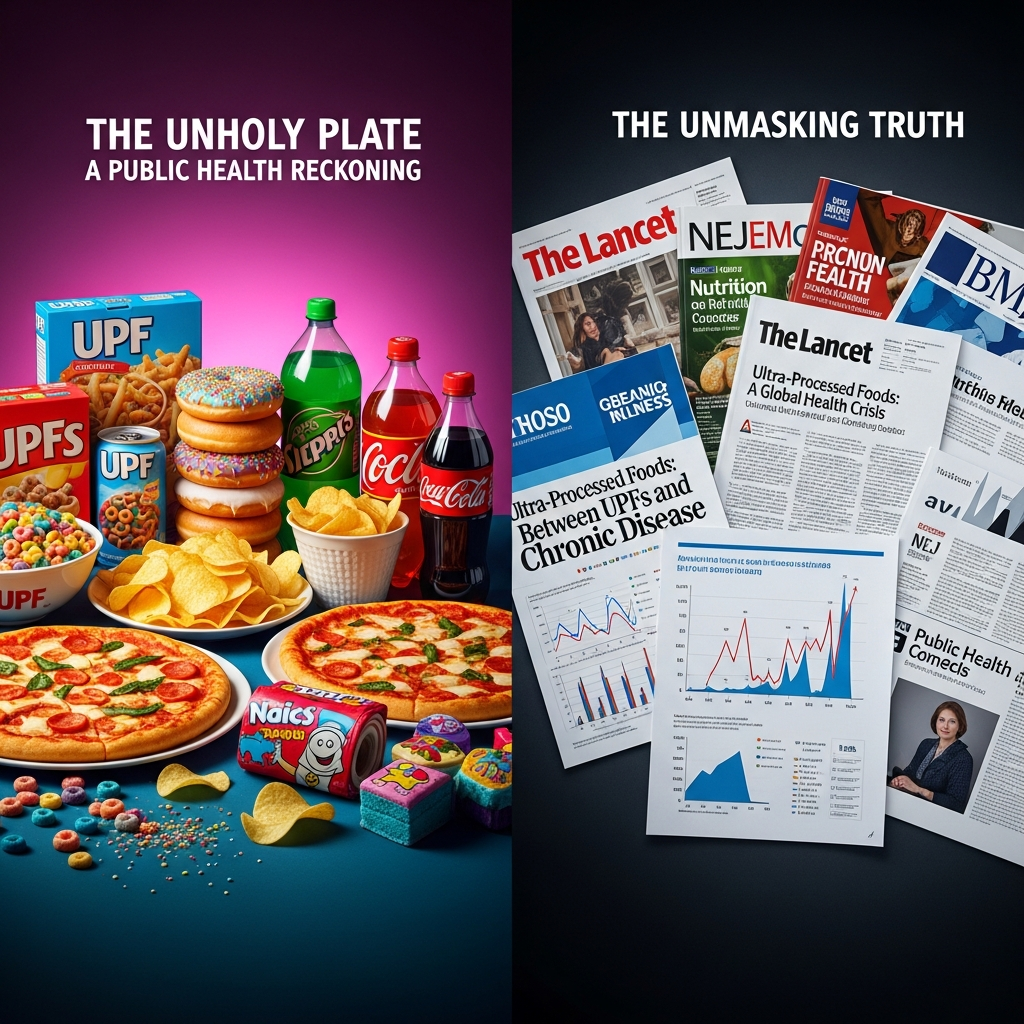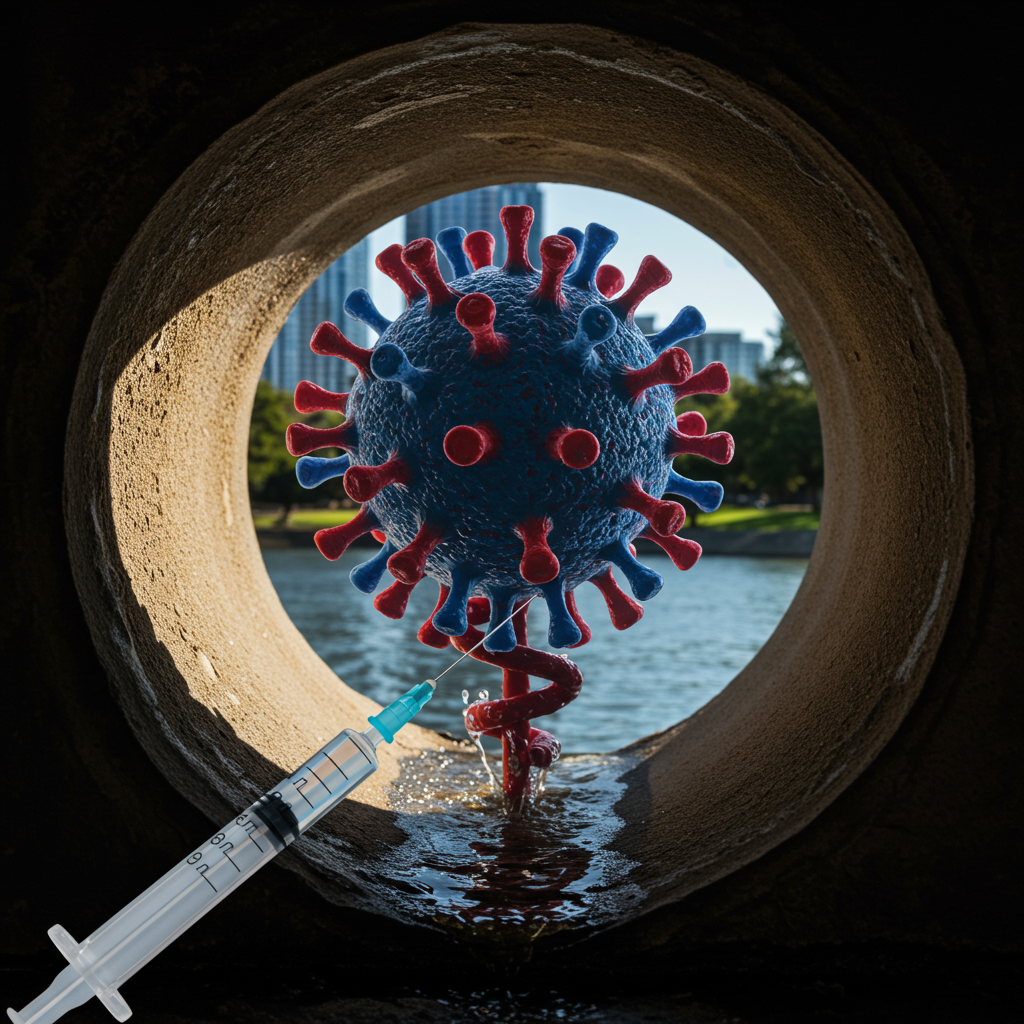The global consumption of ultra-processed foods (UPFs) has reached epidemic proportions, fueling a dual crisis: a massive public health threat and unprecedented profits for the food industry. New research, including an unprecedented three-part series in The Lancet, unmasks how these highly engineered products contribute to chronic diseases and premature death, while corporations employ aggressive tactics, echoing the tobacco industry’s playbook, to expand their markets and undermine public health efforts. This deep dive reveals the alarming scale of the problem and the urgent call for global action to protect consumers.
The Rise of Ultra-Processed Foods: A Global Phenomenon
Ultra-processed foods, or UPFs, are far more than just “processed.” They are industrial formulations typically made from inexpensive ingredients like oils, fats, sugars, starches, and protein isolates, combined with an array of additives such as emulsifiers, flavorings, and colorings. These ingredients are rarely used in home cooking. Brazilian epidemiologist Carlos Monteiro, who coined the term in 2009, developed the NOVA classification system to categorize foods by their level of industrial processing. This system highlights how UPFs stand apart, unlike minimally processed items like fruits or vegetables, or even simple processed foods like canned vegetables.
Today, UPFs dominate grocery shelves. In the United States, they account for nearly 60% of adults’ daily calorie intake and a staggering 70% for children, according to Stanford Medicine research dietitian Dalia Perelman. This isn’t a new trend; artificial flavors emerged in the 19th century. However, the post-World War II era saw a boom in food processing, driven by military advancements that prioritized shelf-stable, palatable, and calorie-dense options. These innovations soon transitioned into mass consumer production, making UPFs ubiquitous and affordable globally.
The Alarming Health Toll of UPFs
The link between a high intake of ultra-processed food and severe health outcomes is increasingly clear and concerning. The Lancet series, backed by 43 global nutrition experts and supported by UNICEF and the World Health Organization (WHO), highlights how these foods contribute significantly to worldwide obesity, chronic health conditions, and premature death. Dr. Carlos Augusto Monteiro emphasizes that the displacement of traditional diets by UPFs is “the most convincing explanation for the global pandemic of chronic diseases related to diet.”
A comprehensive 2024 review of 45 meta-analyses, encompassing nearly 10 million participants, provides “convincing” evidence of these dangers. High UPF diets increase the risk of death from cardiovascular disease by 50% and anxiety by 48%. Furthermore, there’s “highly suggestive” evidence for increased risks of early death from any cause (21%), obesity (55%), sleep disorders (41%), Type 2 diabetes (40%), and depression (20%). A 2022 study in The BMJ also linked high UPF intake in men to a 29% higher risk of colorectal cancer. These figures underscore the profound public health challenge posed by ultra-processed food.
Gut Health and Engineered Overconsumption
One critical mechanism behind UPFs’ detrimental effects is their impact on gut health. Lacking fiber and easily digestible, UPFs starve beneficial gut microbes, potentially leading them to consume the protective mucus lining of the intestines. This increases vulnerability to pathogens and inflammation. Common food additives, such as emulsifiers, have also been shown to disrupt the gut microbiome and weaken the intestinal barrier.
Beyond nutrient deficiencies, UPFs are intentionally engineered for overconsumption. Food scientists skillfully combine sugar, salt, and fat to hit a “bliss point,” triggering neurotransmitters that make these foods intensely desirable and difficult to stop eating. Research by Monteiro showed that rising obesity in Brazil correlated with decreased raw ingredient purchases, as aggressively marketed, hyperpalatable, and affordable UPFs replaced home-cooked meals. A 2019 study in Cell Metabolism demonstrated this directly: participants on an ultra-processed diet consumed an additional 500 to 1,000 calories daily and gained more weight over two weeks compared to those eating unprocessed diets, even when calorie counts and macronutrient profiles were matched.
The Industry’s Playbook: Massive Profits and Aggressive Lobbying
The financial incentives behind ultra-processed food are staggering. More than 50% of the $2.9 trillion paid to shareholders by food corporations between 1962 and 2021 was distributed by UPF manufacturers alone. Barry Popkin, a distinguished professor at UNC, notes that companies can “double or triple their profits” by transforming whole foods like corn or wheat into flavorless powders, then reconstructing them with artificial flavorings and additives. This highly profitable business model actively discourages the production of minimally processed foods.
To maintain these profits, the food industry engages in extensive political lobbying, actively resisting public health policies that promote healthy eating. Experts like Marion Nestle, a professor emerita at NYU, point out that food and beverage corporations, many acquired by major tobacco companies decades ago, have adopted the tobacco industry’s playbook. This includes designing hyperpalatable, addictive products and directing marketing campaigns, often at children, to expand their markets globally.
Discrediting Science and Coordinated Resistance
The International Food & Beverage Alliance (IFBA) counters these criticisms, stating that health authorities worldwide have rejected the concept of ultra-processed food due to a “lack of scientific consensus.” IFBA Secretary-General Rocco Renaldi argues that proposed regulations “go far beyond the available evidence,” warning that they could “limit access to nutrient-dense processed foods and reducing the availability of safe, affordable, shelf-stable options globally.”
However, The Lancet articles reveal a coordinated global network of “front groups, multi-stakeholder initiatives, and research partners” working to battle regulations and discredit science. This network leverages advertising firms, lobbyists, and even dietitian influencers to promote anti-stigma messaging. Their tactics include direct lobbying, infiltrating government agencies, litigation, and “manufacturing scientific doubt.” One review highlighted that industry-funded studies were five times more likely to show no association between obesity and UPF consumption. This systematic approach mirrors historical tactics used by industries to protect their interests, often at the expense of public health.
A Global Epidemic and Urgent Call for Action
The consumption of ultra-processed food is surging worldwide. While markets in the U.S., UK, and EU are heavily saturated (70% of U.S. grocery items are UPFs), the industry is aggressively pushing into South America, Africa, Eastern Europe, China, and India. Professor Maria Laura da Costa Louzada from the University of São Paulo notes that UPF consumption has doubled in countries like Brazil, Canada, and Mexico, and tripled in China, South Korea, and Spain in just a few years. This rapid expansion means traditional, freshly prepared meals are quickly losing ground.
The Lancet series presents a powerful call for a coordinated global effort to regulate the industry, prioritizing children. Countries like Mexico, Norway, the UK, South Korea, and Ireland have already implemented laws restricting UPF marketing, especially to younger audiences. Taxes on sugary sodas have successfully reduced consumption. Front-of-package labels are also gaining traction, though experts like Monteiro suggest they must go beyond warning about just fat, sugar, and salt (HFSS foods) to include artificial flavorings, colorings, and non-nutritive sweeteners, which cover nearly 100% of UPFs.
The World Health Organization (WHO) and UNICEF have publicly joined this effort. The WHO described escalating UPF consumption as a “systemic threat to public health, equity, and environmental sustainability,” endorsing The Lancet series’ “compelling argument for urgent action.” UNICEF offered full support for an international policy framework to “protect children, families, and societies from UPFs,” stressing that “governments must lead a whole-of-society approach that ensures this generation is the first in which children’s rights to nutrition, food, and health are prioritised over corporate profit.”
Navigating the UPF Landscape: Practical Steps for Healthier Choices
While the debate continues regarding the nuance of food classification, reducing reliance on ultra-processed food is a practical and impactful step for individuals. Stanford’s Perelman acknowledges that not all processed foods are equally unhealthy, suggesting a need to differentiate within the ultra-processed category. However, a focus on whole, minimally processed foods remains paramount.
Consider simple swaps:
Prioritize whole ingredients: Choose fresh fruits, vegetables, beans, nuts, seeds, and whole grains.
Read ingredient lists: Opt for products with fewer, recognizable ingredients.
Cook at home: Preparing meals from scratch gives you control over ingredients.
Embrace nutrient-dense alternatives: Incorporate foods known for their health benefits. For example, new research presented at the American Society for Nutrition’s annual conference highlights the power of beans. Eating just one cup of black beans or chickpeas daily can significantly improve long-term heart health, reduce inflammation, and lower “bad” cholesterol. This simple, affordable change can be life-saving, especially for individuals with prediabetes. Beans are rich in fiber and antioxidant polyphenols, supporting gut health and fighting chronic illness.
This holistic approach empowers individuals to make informed choices while the global community works towards broader systemic change.
Frequently Asked Questions
What exactly defines an ultra-processed food (UPF) and why are they concerning?
Ultra-processed foods (UPFs) are industrial formulations made primarily from substances extracted from foods (e.g., sugars, oils, fats, protein isolates) or synthesized ingredients not typically found in a home kitchen (e.g., emulsifiers, artificial flavors, colors). They are designed for convenience, palatability, and long shelf-life. According to the NOVA classification system, UPFs represent the highest level of processing. They are concerning because extensive research links their high consumption to increased risks of obesity, Type 2 diabetes, cardiovascular diseases, certain cancers, and mental health issues like anxiety and depression. Their low fiber content and abundance of additives can also negatively impact gut health.
What steps are governments and health organizations taking to regulate ultra-processed foods globally?
Governments and health organizations worldwide are proposing and implementing various strategies to curb UPF consumption. These include imposing taxes on sugary drinks (e.g., in Mexico), implementing strict laws against marketing UPFs, especially to children (e.g., in the UK, Norway), and requiring clear front-of-package warning labels. The Lancet series advocates for expanding these labels to highlight artificial flavorings, colorings, and non-nutritive sweeteners, not just high fat, sugar, and salt content. The World Health Organization (WHO) and UNICEF are actively supporting a coordinated global effort to develop an international policy framework to protect public health and children from the pervasive influence of the UPF industry.
How can individuals reduce their consumption of ultra-processed foods effectively?
Reducing UPF consumption involves conscious choices and meal planning. Prioritize whole, minimally processed foods like fresh fruits, vegetables, legumes (such as beans and chickpeas, known for heart health benefits), whole grains, nuts, and lean proteins. When purchasing packaged goods, read ingredient lists carefully; opt for products with fewer, recognizable ingredients. Cooking meals at home from scratch provides greater control over what goes into your food. Simple swaps, like choosing plain yogurt over flavored varieties, snacking on nuts and seeds instead of processed chips, or making homemade sauces, can significantly reduce UPF intake. Gradually incorporating more whole foods into your diet is a sustainable strategy for improving overall health.
Conclusion
The evidence is clear: the unchecked rise of ultra-processed food presents a critical threat to public health and environmental sustainability. Fueled by massive corporate profits and aggressive marketing tactics, these products are not only displacing traditional, nutritious diets but are actively contributing to a global surge in chronic diseases. The powerful calls for action from global health leaders, scientists, and organizations like WHO and UNICEF signify a crucial turning point. While systemic change requires collective governmental and societal effort, individuals can start making impactful choices today by prioritizing whole, minimally processed foods. The future of global health depends on confronting this industry’s influence and reclaiming our diets.




